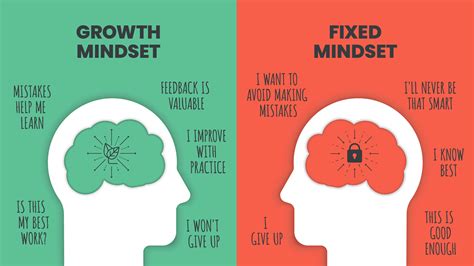Our internal dialogue, or self-talk, profoundly shapes our perception of ourselves, our capabilities, and the world around us. For many, this inner voice can be a harsh critic, whispering doubts, fears, and limitations. This negative self-talk can trap us in a fixed mindset, hindering growth and preventing us from reaching our full potential. However, it is possible to transform this inner critic into a powerful ally, fostering a growth mindset that embraces challenges, learns from setbacks, and sees possibilities rather than obstacles.
Understanding Negative Self-Talk
Negative self-talk manifests in various forms, often rooted in past experiences, societal expectations, or ingrained habits. It can sound like, “I’m not good enough,” “I’ll never succeed,” “This is too hard,” or “I always mess up.” These thoughts, whether conscious or subconscious, erode self-esteem, increase stress, and create a self-fulfilling prophecy of limitation. Recognizing these patterns is the crucial first step towards change.
It’s important to understand that negative self-talk isn’t a reflection of your true worth, but rather a habit of the mind. Like any habit, it can be broken and replaced with more constructive patterns. Becoming an observer of your thoughts, rather than being consumed by them, provides the necessary distance to begin the transformation.

The Power of a Growth Mindset
In contrast to a fixed mindset, which believes abilities are inherent and unchangeable, a growth mindset embraces the idea that intelligence and talents can be developed through dedication and hard work. Coined by psychologist Carol Dweck, this perspective views challenges as opportunities for learning and growth, rather than insurmountable barriers. It shifts the focus from an outcome-driven mentality to a process-oriented approach, where effort and improvement are celebrated.
Adopting a growth mindset allows you to bounce back from failures, persist through difficulties, and view constructive criticism as valuable feedback. It fosters resilience, adaptability, and a genuine love for learning—essential qualities for navigating a constantly evolving world.
Step-by-Step Transformation Strategies
1. Recognize and Observe Your Thoughts
Before you can change negative self-talk, you must become aware of it. Pay close attention to your inner dialogue, especially during challenging moments or when you’re feeling down. Journaling can be a powerful tool here; jot down the exact phrases you’re telling yourself. The goal isn’t to judge these thoughts but to simply acknowledge their presence.
2. Challenge Your Inner Critic
Once you’ve identified a negative thought, question its validity. Ask yourself: “Is this thought absolutely true?” “What evidence do I have to support it?” “Is there another way to look at this situation?” Often, you&ll find that negative self-talk is based on assumptions, fears, or past failures, not current reality or future potential.

3. Reframe the Narrative
This is where the transformation truly begins. Instead of simply dismissing a negative thought, consciously rephrase it into a more constructive, growth-oriented statement. For example, change “I’m so bad at this” to “I’m learning, and it’s okay to make mistakes,” or “This is too hard” to “This is challenging, but I can develop the skills to overcome it.” The power of “yet” is immense: “I haven’t mastered this yet, but I will.”
4. Practice Self-Compassion
Treat yourself with the same kindness and understanding you would offer a friend. When you stumble, avoid harsh self-criticism. Acknowledge your struggles, offer yourself comfort, and remind yourself that imperfection is part of the human experience. Self-compassion builds resilience and allows you to learn from mistakes without being crippled by them.

5. Focus on Effort and Learning, Not Just Outcomes
Shift your internal reward system. Instead of solely celebrating successes, acknowledge and value the effort you put in, the lessons you learned, and the progress you made, regardless of the final outcome. This reinforces the idea that the journey and the learning process are just as important, if not more, than the destination.
6. Surround Yourself with Positivity
The people and environments we choose influence our mindset. Seek out individuals who uplift you, offer constructive support, and embody a growth-oriented perspective. Limit exposure to negativity, whether it’s from people, social media, or news. Cultivate a space that encourages learning, experimentation, and positive self-reflection.

Conclusion
Transforming negative self-talk into a growth mindset is a journey, not a single event. It requires consistent effort, self-awareness, and a commitment to nurturing a more supportive internal environment. By recognizing your inner critic, challenging its narratives, reframing your thoughts, and practicing self-compassion, you can unlock your potential for continuous growth and build a foundation for lasting resilience and fulfillment. Start today by listening to your inner voice and choosing to respond with kindness and a belief in your capacity to learn and evolve.




